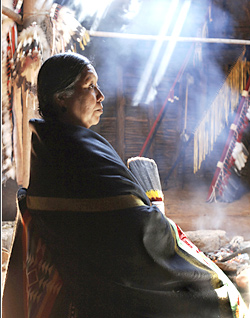Related Research Articles

Johnson County is a county in the U.S. state of Kansas, along the border of the state of Missouri. Its county seat is Olathe. As of the 2020 census, the population was 609,863, the most populous county in Kansas. The county was named after Thomas Johnson, a Methodist missionary who was one of the state's first settlers. Largely suburban, the county contains a number of suburbs of Kansas City, Missouri, including Overland Park, a principal city of and second most populous city in the Kansas City Metropolitan Area.

The Kansas City metropolitan area is a bi-state metropolitan area anchored by Kansas City, Missouri. Its 14 counties straddle the border between the U.S. states of Missouri and Kansas. With 8,472 square miles (21,940 km2) and a population of more than 2.2 million people, it is the second-largest metropolitan area centered in Missouri and is the largest metropolitan area in Kansas, though Wichita is the largest metropolitan area centered in Kansas. Alongside Kansas City, Missouri, these are the suburbs with populations above 100,000: Overland Park, Kansas; Kansas City, Kansas; Olathe, Kansas; Independence, Missouri; and Lee's Summit, Missouri.

The Plains Apache are a small Southern Athabaskan group who live on the Southern Plains of North America, in close association with the linguistically unrelated Kiowa Tribe. Today, they are centered in Southwestern Oklahoma and Northern Texas and are federally recognized as the Apache Tribe of Oklahoma.
Solon Toothaker Kimball was a noted educator and anthropologist. Kimball was born and raised in Manhattan, Kansas. He graduated from Kansas State University in 1930, then received a master's degree and Ph.D. in social anthropology from Harvard in 1933 and 1936.
William C. "Skinny" Johnson was an American basketball player during the 1930s. As a 6 feet 4 inches (193 cm) center Johnson was among the tallest players of his time. The Oklahoma City native attended the University of Kansas (1929–33), where he was a three-year letterwinner under coach Phog Allen. He was named First-Team Big Six Conference twice as well as Second-Team Big Six Conference (1931) once. During the 1930s he played amateur basketball with several AAU teams. He briefly coached collegiate basketball at Cleveland Chiropractic College (1937) in Kansas City, Missouri as well. On May 2, 1977, Johnson was inducted to the Naismith Memorial Basketball Hall of Fame as a player.
Stone Edward Johnson was an American sprinter and professional football player. He played as a kick returner and running back for the Kansas City Chiefs of the American Football League (AFL).

Edward Lawrence Winn Jr. was an American politician and member of the U.S. House of Representatives representing Kansas's 3rd district from 1967 to 1985. He was a member of the Republican Party.

Stanley Ann Dunham was an American anthropologist who specialized in the economic anthropology and rural development of Indonesia. She was the mother of Barack Obama, the 44th president of the United States. Dunham was known as Stanley Ann Dunham through high school, then as Ann Dunham, Ann Obama, Ann Soetoro, a.k.a. Ann Sutoro, and resumed her maiden name, Ann Dunham, later in life.
The Steed-Kisker culture is a cultural phase that is part of the larger Central Plains Village tradition of the Plains Village period. This term applies to the prehistoric peoples who occupied the Great Plains region of the modern-day United States in prehistoric times.

George Robert Fischer was an American underwater archaeologist, considered the founding father of the field in the National Park Service. A native Californian, he did undergraduate and graduate work at Stanford University, and began his career with the National Park Service in 1959, which included assignments in six parks, the Washington, D.C. Office, and the Southeast Archaeological Center from which he retired in 1988. He began teaching courses in underwater archaeology at Florida State University in 1974 and co-instructed inter-disciplinary courses in scientific diving techniques. After retirement from the NPS his FSU activities were expanded and his assistance helped shape the university's program in underwater archaeology.
Sidney Johnson is a former American football cornerback in the National Football League for the Kansas City Chiefs and the Washington Redskins. He played college football at the University of California.

John M. Janzen is a Professor Emeritus in the Department of Anthropology at the University of Kansas. He has been a leading figure on issues of health, illness, and healing in Southern and Central Africa since the 1960. And has dedicated much of his career to providing a better understanding of African society. Janzen’s knowledge of the Kikongo language and his intermittent visits to the lower Congo region between 1964 and 2013 have paved the way for a contextual understanding of the roots of Western Equatorial African approaches to sickness and healing, combining African and Western derived biomedical therapies. Janzen’s research has expanded to include other African countries such as Rwanda, Burundi, Senegal, South Africa, Swaziland, Tanzania, and Sudan. He is the former director of the Kansas African Studies Center at the University of Kansas.
Waldo Rudolph Wedel was an American archaeologist and a central figure in the study of the prehistory of the Great Plains. He was born in Newton, Kansas to a family of Mennonites.

Michael Lee Wesch is Professor of Cultural Anthropology and a University Distinguished Teaching Scholar at Kansas State University. Wesch's work also includes media ecology and the emerging field of digital ethnography, where he studies the effect of new media on human interaction.
Douglas H. Ubelaker is an American forensic anthropologist. He works as a curator for the Smithsonian Institution, and has published numerous papers and monographs that have helped establish modern procedures in forensic anthropology. He has also done work in Latin America, with Native Americans, and has assisted the Federal Bureau of Investigation in forensic cases.
The 1905–06 Kansas Jayhawks men's basketball team represented the University of Kansas in its eighth season of collegiate basketball. The head coach was James Naismith, the inventor of the game, who served his 8th year in that capacity. The Jayhawks finished the season 12–7, their first winning record since the 1898–99 season. Phog Allen, who would later become the Jayhawks head coach, played on the team.

The 1939 Kansas State Wildcats football team represented Kansas State University in the 1939 college football season. The team's head football coach was Wesley Fry, in his fifth and final year of his at the helm of the Wildcats. The Wildcats played their home games in Memorial Stadium. The Wildcats finished the season with a 4–5 record with a 1–4 record in conference play. They finished in a three-way tie for last place in the Big Six Conference. The Wildcats scored 107 points and gave up 108 points.

Elizabeth A. Johnson was a prominent advocate of Kansas history. She discovered, purchased, and donated the land that makes up the Pawnee Indian Museum State Historic Site to the state of Kansas in 1899. At the time, it was considered to be the first place the United States flag was raised on the state of Kansas.
Lindsay Vaughn is an American politician serving as a member of the Kansas House of Representatives from the 22nd district. Elected in the November 2020, she assumed office on January 11, 2021.
Timothy H. Johnson is an American politician serving as a member of the Kansas House of Representatives from the 38th district. Elected in November 2020, he assumed office on January 11, 2021.
References
- ↑ Smith, Carlyle (1985) A History of Anthropology at the University of Kansas
- ↑ "Archaeological Collections". ku.edu. The University of Kansas. Archived from the original on 25 June 2016. Retrieved 19 September 2014.